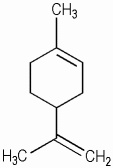Details
A super common and cheap fragrance ingredient. It's in many plants, e.g. rosemary, eucalyptus, lavender, lemongrass, peppermint and it's the main component (about 50-90%) of the peel oil of citrus fruits.
It does smell nice but the problem is that it oxidizes on air exposure and the resulting stuff is not good for the skin. Oxidized limonene can cause allergic contact dermatitis and counts as a frequent skin sensitizer.
Limonene's nr1 function is definitely being a fragrance component, but there are several studies showing that it's also a penetration enhancer, mainly for oil-loving components.
All in all, limonene has some pros and cons, but - especially if your skin is sensitive - the cons probably outweigh the pros.
Show me some proof
- Journal of Cosmetic Dermatology, Volume 9 (3)–Sep 1, 2010, Original Contribution: Top 10 botanical ingredients in 2010 anti‐aging creams
- Matura, Mihály, et al. "Oxidized citrus oil (R-limonene): a frequent skin sensitizer in Europe." Journal of the American academy of dermatology 47.5 (2002): 709-714.
- Ahmad, Muhammad Mushtaq, et al. "Genetic variability to essential oil composition in four citrus fruit species." Pakistan Journal of Botany 38.2 (2006): 319.
- Takayama, Kozo, and Tsuneji Nagai. "Limonene and related compounds as potential skin penetration promoters." Drug Development and industrial pharmacy 20.4 (1994): 677-684.
- Koyama, Yasuo, et al. "Comparative analysis of percutaneous absorption enhancement by d-limonene and oleic acid based on a skin diffusion model." Pharmaceutical research 11.3 (1994): 377-383.






